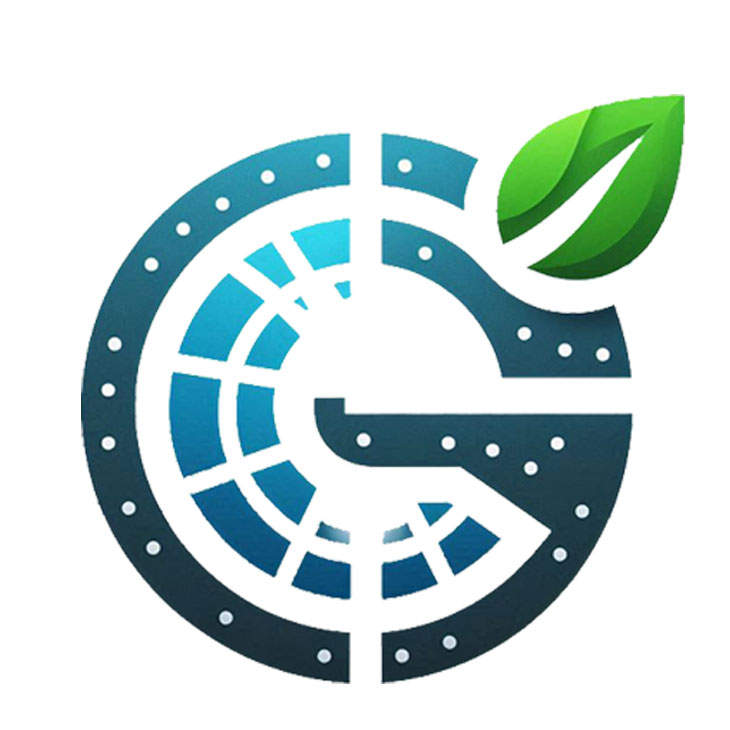
Waste Management Sustainable
Waste Management Sustainable development with cleantech focuses on efficiently handling waste while reducing environmental impact and promoting sustainability.
- Here are several categories and subcategories of Waste Management Sustainable development within the cleantech that you can use as a Features when you are Add Listing in Global Cleantech Directory Platform. Waste Management Sustainable subcategories help people’s searching in the Global Cleantech Directory Platform by categorizing and finding the relevant wide range of cleantech and approaches aimed at making waste management more sustainable and efficient, thereby contributing to the broader goals of cleantech and environmental conservation. emphasizing the importance of reducing, reusing.
1. Waste Reduction and Prevention:
- – Source Reduction: Strategies to reduce the amount and toxicity of waste produced at the source. Practices and technologies that minimize waste generation at the source, such as sustainable product design and packaging reduction.
– Eco-Design: Designing products with their end-of-life in mind to reduce waste and facilitate recycling.
– Sustainable Packaging: Developing packaging materials that are environmentally friendly and reduce waste.
2. Recycling and Resource Recovery:
- – Material Recovery Facilities (MRFs): Facilities equipped with advanced sorting technologies like optical sorters and eddy current separators. Plants that sort and process recyclable materials.
– Closed-Loop Recycling: Systems that recycle materials back into similar products, such as bottle-to-bottle recycling.
– E-Waste Recycling: Specialized processes for recovering valuable materials from electronic waste.
– Organic Waste Recycling: Composting and anaerobic digestion to convert organic waste into useful products like compost and biogas.
3. Composting and Organic Waste Management:
- – Aerobic Composting: Technologies for composting organic waste using aerobic microorganisms.
– Anaerobic Digestion: Processes that decompose organic matter in the absence of oxygen to produce biogas and digestate.
-Vermicomposting: Using worms to convert organic waste into high-quality compost.
4. Waste-to-Energy (WtE):
- – Incineration with Energy Recovery: Burning waste to generate electricity and heat while reducing the volume of waste with technologies to minimize emissions.
– Gasification and Pyrolysis: Advanced thermal processes that convert waste into syngas, biochar, and other useful by-products.
– Biogas Production: Generating biogas from organic waste through anaerobic digestion.
5. Hazardous Waste Management:
- – Chemical Treatment: Neutralizing hazardous substances through chemical reactions.
– Bioremediation: Using microorganisms to detoxify hazardous waste.
– Secure Landfills: Engineered landfills designed to safely contain hazardous waste. Modern advanced landfill designs that minimize environmental impact and capture methane for energy.
– Hazardous Waste Treatment: Specialized methods for safely treating and disposing of hazardous waste.
6. Circular Economy Practices:
- – Product Life Extension: Strategies like repair, refurbishing, and remanufacturing to extend the lifespan of products.
– Industrial Symbiosis: Creating networks systems where the waste or by-products of one industry serve as raw materials and inputs for another.
– Product Stewardship: Programs where manufacturers take responsibility for the end-of-life disposal of their products.
7. Smart Waste Management Systems:
- – IoT and Sensors: Using sensors, data analytics and IoT devices for real-time monitoring of waste bins and collection routes to optimize waste collection, management and efficiency.
– Data Analytics: Analyzing waste generation and management data to improve practices and policies.
– Automated Sorting Systems: Using robotics and AI to improve the efficiency of waste sorting.
8. Plastic Waste Management:
- – Mechanical Recycling: Processes that physically recycle plastic waste into new products.
– Chemical Recycling: Breaking down plastics into their chemical components for reuse in new materials.
– Biodegradable Plastics: Developing and managing plastics designed to decompose under specific conditions.
9. Landfill Management:
- – Landfill Gas Capture: Collecting and utilizing methane from landfills to generate energy.
– Leach Treatment: Advanced systems for treating the liquid that drains from landfills to prevent environmental contamination.
– Landfill Mining: Recovering materials and energy from old landfill sites.
10. Construction and Demolition (C&D) Waste Management:
- – Deconstruction: Carefully dismantling buildings to maximize material recovery.
– Recycling of C&D Materials: Processes for recycling concrete, wood, metals, and other construction debris.
– Sustainable Construction Practices: Techniques that reduce waste generation in construction and demolition.

Empowering a Sustainable Future
Innovate, Connect, Transform
Recommended Tags
Waste Management Sustainable
- Here are some commonly used tags in the Waste Management sustainable development within the clean tech that you can use when you are Add Listing in Global Cleantech Directory Platform. Waste Management sustainable tags help categorize and find content related to innovative and sustainable waste management practices within the clean tech sector when you are searching in the Global Cleantech Directory Platform.
Recycling
- Paper Recycling
Plastic Recycling
Metal Recycling
Glass Recycling
E-Waste Recycling
Recycling Programs
Recycling Technologies
Composting
- Organic Waste
Home Composting
Industrial Composting
Compostable Materials
Compost Bins
Composting Techniques
WasteReduction
- Zero Waste
Waste Minimization
Waste Prevention
Resource Efficiency
Sustainable Consumption
Waste Reduction Tips
Circular Economy
- Material Reuse
Product Lifecycle
Circular Design
Resource Recovery
Industrial Symbiosis
Circular Business Models
Hazardous Waste
- Hazardous Waste Disposal
Chemical Waste
Toxic Waste Management
Hazardous Waste Regulations
Hazardous Waste Treatment
Safety Measures
E-Waste Management
- Electronic Waste
E-Waste Recycling
E-Waste Collection
E-Waste Regulations
Responsible E-Watedisposal
Urban Mining
Municipal Solid Waste
- Household Waste
Waste Collection Services
Landfills
Waste Segregation
Solid Waste Management
Urban Waste Solutions
Industrial Waste
- Industrial Waste Management
Manufacturing Waste
Construction Demolition Waste
Industrial Symbiosis
Waste Audits
Waste Reduction Industry
Biodegradable Waste
- Food Waste
Yard Waste
Compostable Packaging
Organic Waste Recycling
Biodegradation
Anaerobic Digestion
Waste Management Policy and Regulation
- Waste Legislation
Environmental Compliance
Extended Producer Responsibility (EPR)
EPR
Waste Management Policies
Government Initiatives
Waste Management Standards
Smart Waste Management
- IoT in Waste Management
Smart Bins
Waste Monitoring
Data Analytics Waste Management
Automated Waste Collection
Waste Management Apps
Environmental Impact
- Pollution Control
Waste Management Climate Change
Sustainable Waste Management
Environmental Footprint
Eco-Friendly Waste Practices
Impact Assessments
Public Awareness and Education
- Recycling Education
Waste Segregation Awareness
Community Involvement
Environmental Education
Public Awareness Campaigns
School Programs
Innovation and Technology
- Advanced Recycling Technologies
Waste Treatment Innovations
Waste Management Startups
R&D Waste Management
Emerging Waste Technologies
Technological Advancements
Popular Q&A
Waste Management Sustainable
- Here are some popular Q&A topics for Waste Management Sustainable development within the context of cleantech.
Clean tech in waste management involves using advanced technologies and innovative methods to reduce waste generation, enhance recycling processes, and minimize environmental impact.
Smart waste bins are equipped with sensors that monitor the fill level and usage patterns, enabling optimized collection schedules and reducing overflow and collection costs.
Waste-to-energy technologies convert non-recyclable waste into usable energy through processes like incineration, gasification, and anaerobic digestion, reducing landfill use and producing renewable energy.
Composting transforms organic waste into nutrient-rich compost, reducing landfill waste, lowering greenhouse gas emissions, and enriching soil health for agricultural use.
Recycling processes recover valuable materials from waste streams, reducing the need for raw materials, saving energy, and minimizing environmental pollution.
Technologies such as optical sorters, magnetic separators, and robotic systems enhance the accuracy and speed of sorting recyclable materials, increasing the efficiency and effectiveness of recycling operations.
EPR policies hold manufacturers accountable for the end-of-life disposal of their products, encouraging the design of more sustainable products and reducing waste.
Circular economy principles aim to eliminate waste through the continuous use of resources, promoting recycling, reuse, and sustainable product design.
Citizens can contribute by reducing waste, recycling properly, composting organic waste, participating in community clean-up efforts, and supporting policies that promote sustainable waste management.
The future includes advancements in AI and robotics for waste sorting, increased use of renewable energy in waste processing, development of sustainable packaging, and stronger regulatory frameworks to support sustainable practices.
Landfill gas capture systems collect methane produced by decomposing waste in landfills, which can then be used as a renewable energy source, reducing greenhouse gas emissions.
Challenges include high initial costs, technological integration, public awareness and participation, regulatory compliance, and maintaining infrastructure.
Data analytics in smart waste management systems analyze waste generation patterns, optimize collection routes, forecast future waste volumes, and improve overall efficiency.
Biodegradable materials decompose naturally, reducing landfill waste, lowering pollution, and offering an eco-friendly alternative to traditional plastics.
- These questions cover various aspects of Waste Management Sustainable within the cleantech framework, focusing on innovative solutions, benefits, challenges, and future prospects in creating sustainable waste management systems.
- Explore the link to learn about Waste Management Sustainable category and discover related insights from our Annual EarthDay Conference Speech

